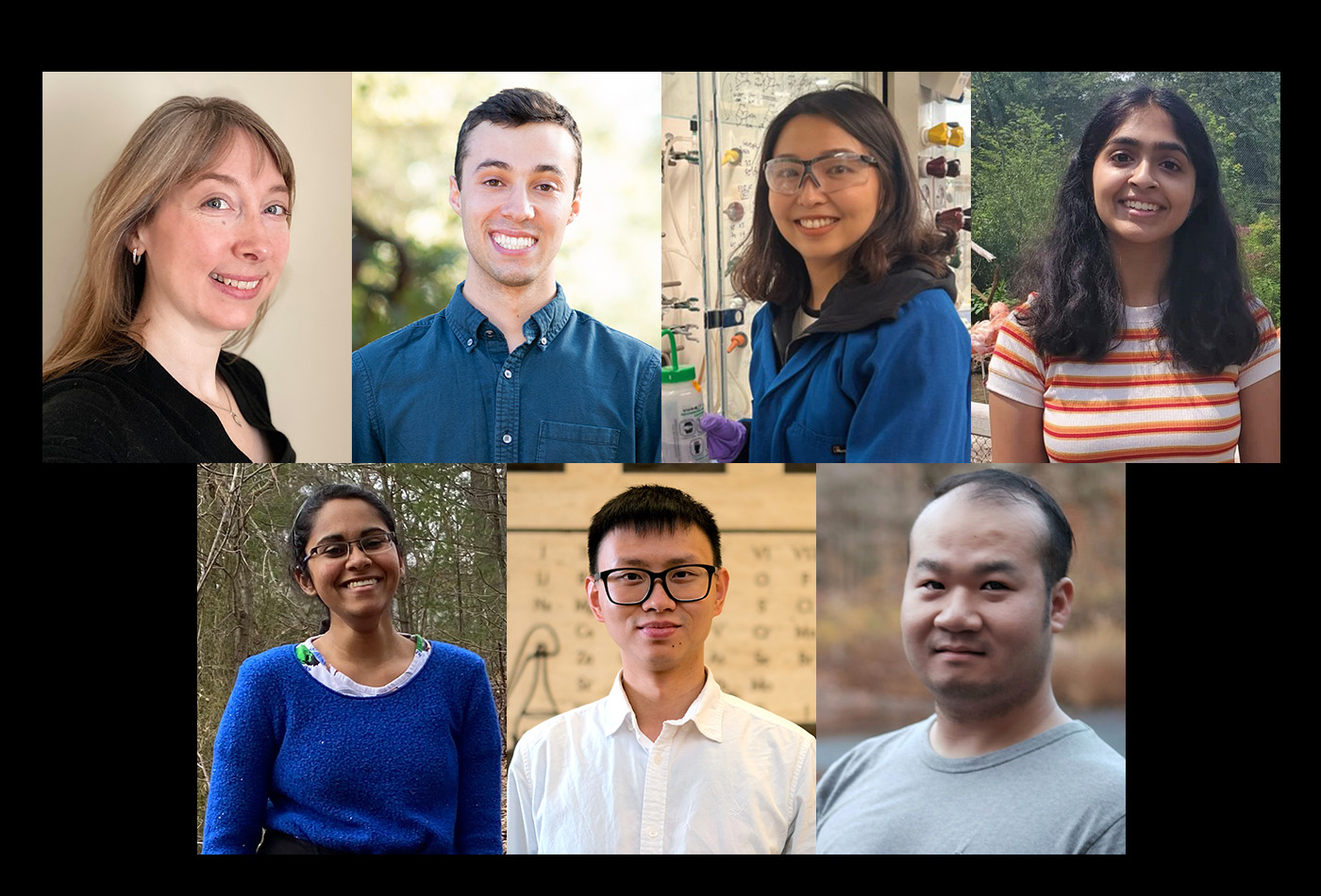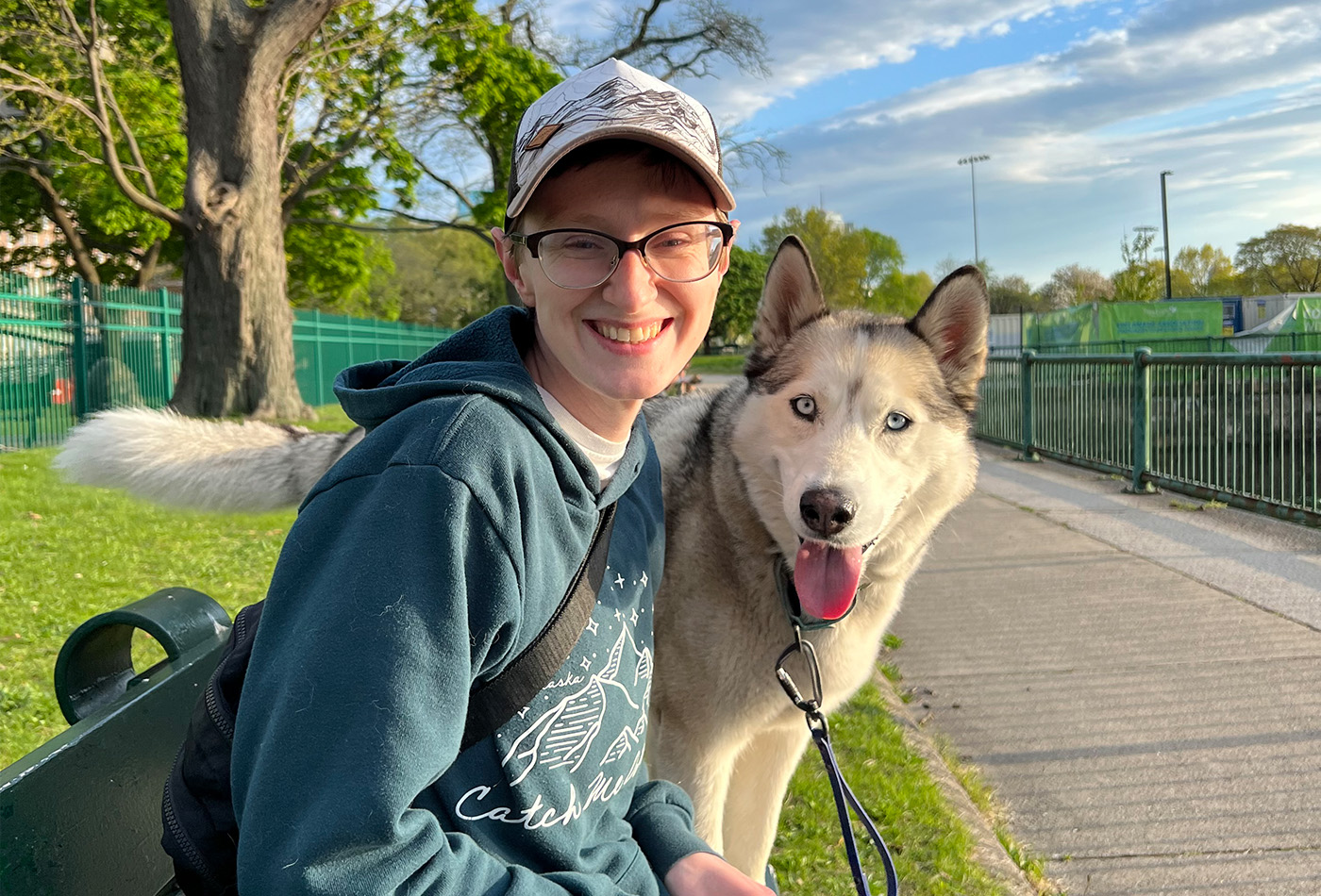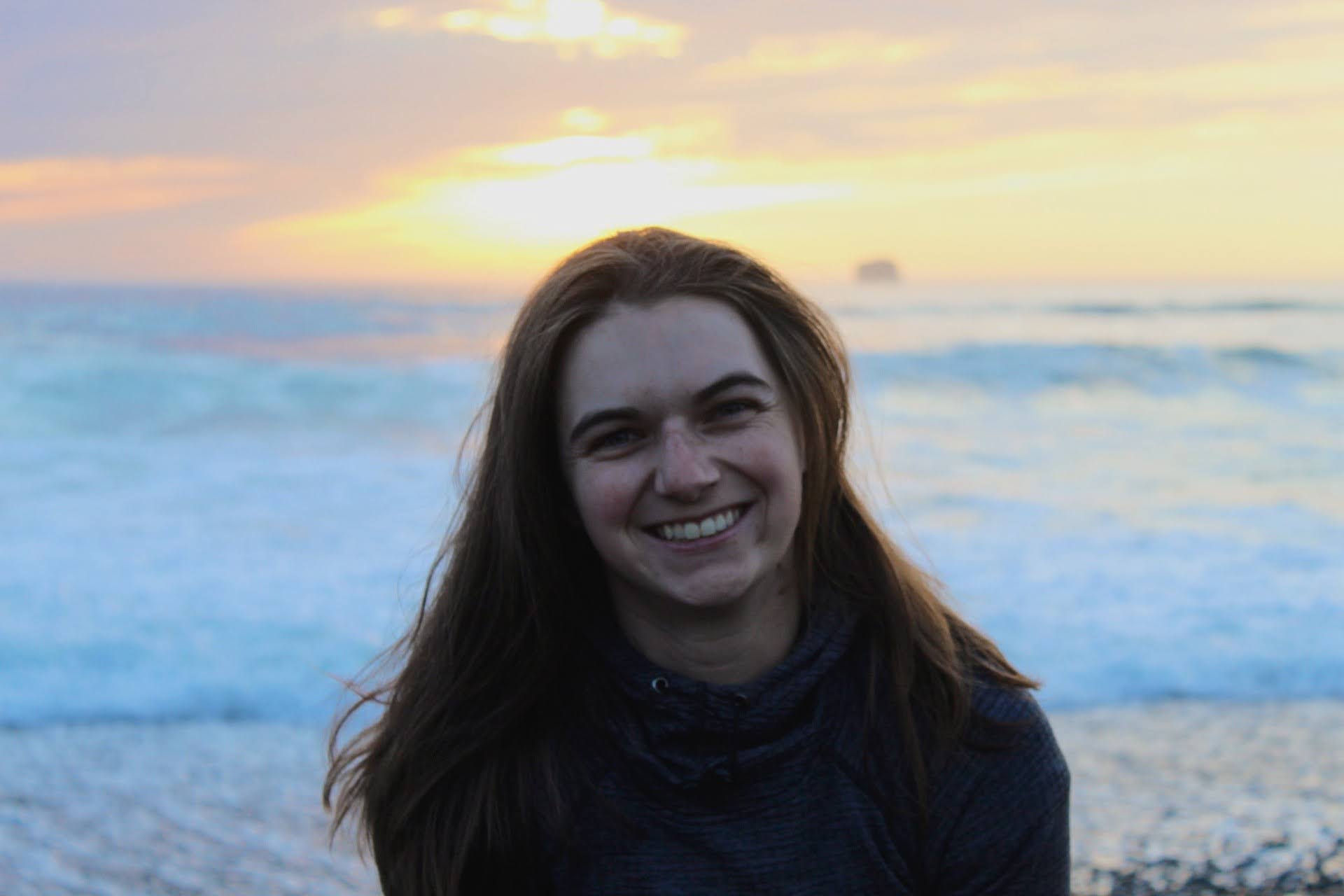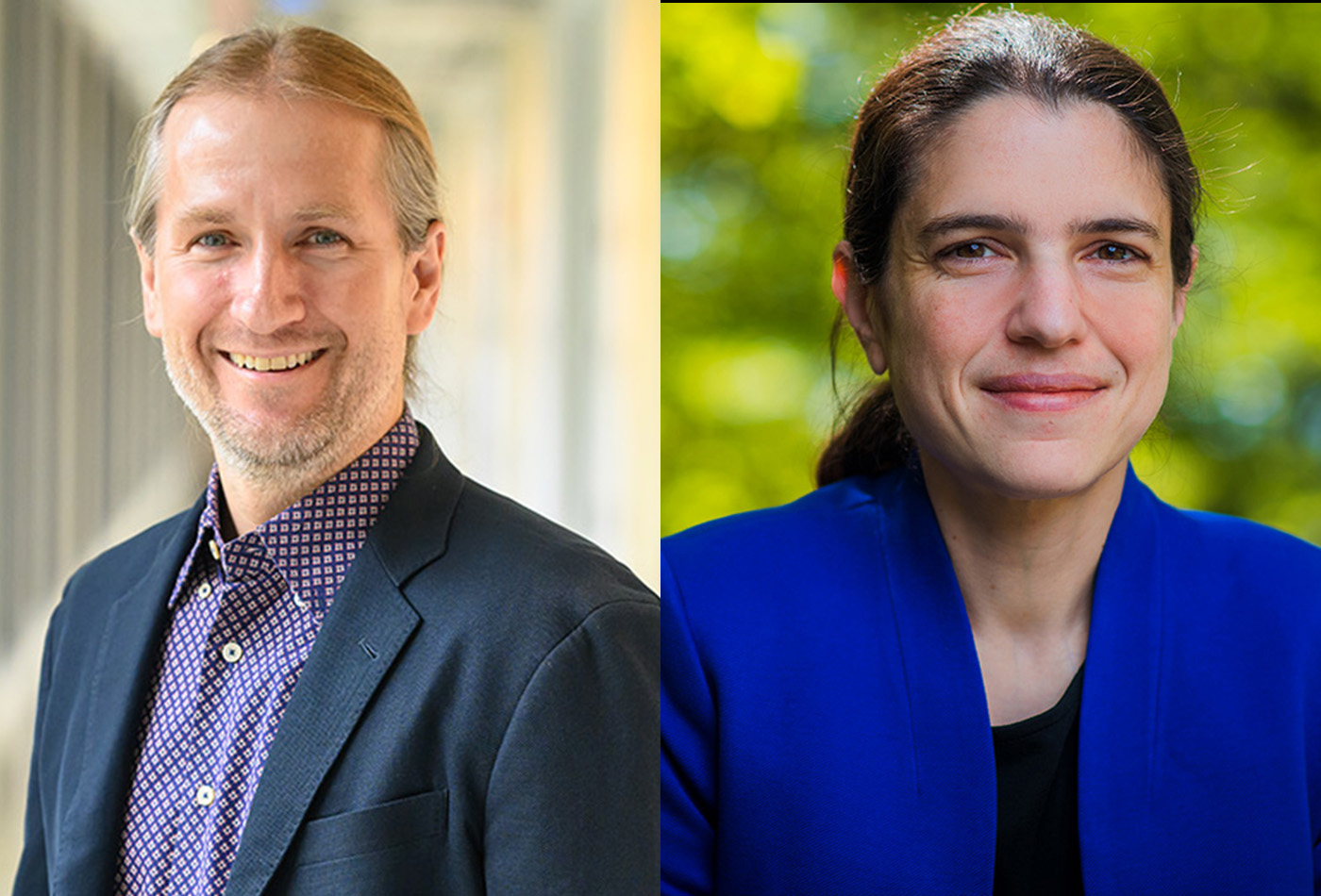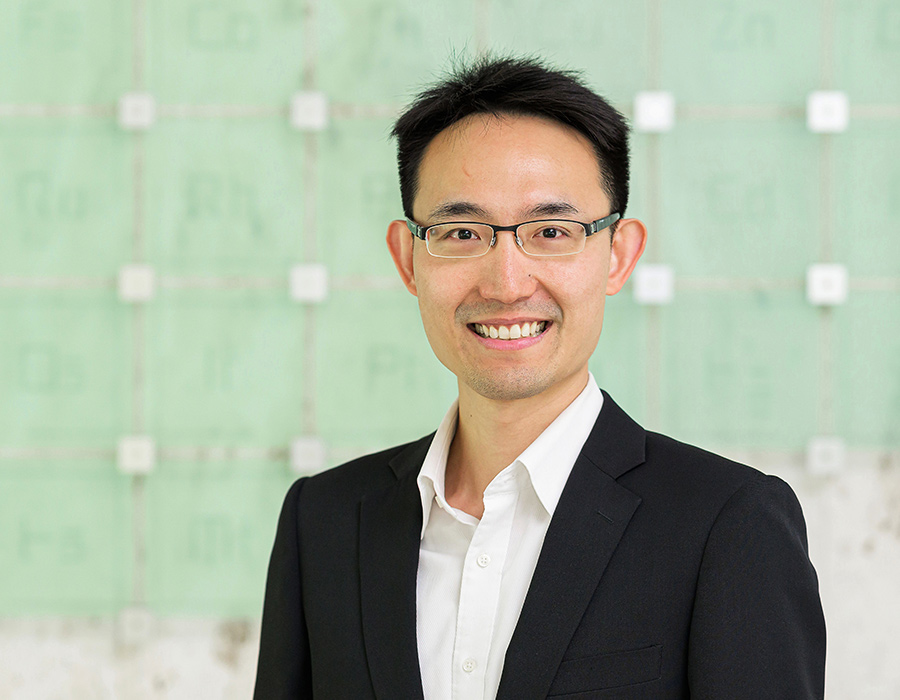Seven Commendable Mentors honored with Mentorship Spotlight Awards
The Department of Chemistry presents this award to members of the staff, postdoctoral, and student community who demonstrate outstanding mentorship.
Seven commendable Chemistry mentors have been honored with the department’s semi-annual Mentorship Spotlight Award. Established in 2020, this award recognizes individuals who demonstrate exceptional commitment to fostering a positive working environment for those around them, leading by example, and generally demonstrating outstanding mentorship. Winners are chosen from a pool of nominees submitted by fellow staff, faculty, and students. Each winner is presented with a prize in the form of a crystal award and a monetary sum.
Fall 2023 Mentorship Spotlight Awardees:
Dr. Amanda E. Dugan
As a Research Scientist in Professor Laura Kiessling‘s lab, Dr. Amanda E. Dugan serves as a consistent leader, providing members of the lab with exemplary and productive responses to issues that inevitably arise.
“The mentors in my life have met me at my level, made an effort to understand my underlying motivations and interests, and pushed me to grow into spaces that I never would have explored without their encouragement,” said Dugan. “I see so many incredible junior scientists second-guess their competence based on whether experiments are working or not. This is exacerbated by the quality of support within the research environment. I am motivated by a desire to help the people around me see how resilient, caring, creative, and brilliant they are. I am fortunate to work alongside colleagues who exemplify leadership and mentorship daily; if anything, I just mirror a small fraction of their effort and dedication.”
Dugan’s research involves studying how mammalian lectins distinguish colonizing microbes in the body, and how tolerance to these microbes changes under different immunological landscapes.
Abraham Herzog-Arbeitman
A member of Professor Jeremiah Johnson‘s group, PhD candidate Abraham Herzog-Arbeitman is known for his self-inflicted sense of responsibility to foster his mentees’ independence. He is credited with growing his mentees’ confidence both in and out of the lab, and has had an everlasting positive impact on their overall experience at MIT.
“Chemistry requires technique and intuition to design and implement good experiments, and these skills are very difficult to learn on one’s own or from literature, so the personal relationship of mentor and mentee is irreplaceable when preparing the next generation of chemists,” said Herzog-Arbeitman. “This is even more important when we consider that good science is science which can be built upon; so instructing someone with new ideas and perspectives how to work alongside me has absolutely improved my scholarship.”
Herzog-Arbeitman’s research is split between polymer electrolytes for battery applications and mechanochemistry for polymer network toughening. The first project develops a class of microporous polyanions, and investigates how polymer structure mediates ion transport. His second project considers how polymeric materials fracture, and how we can harness molecular design to control fracture mechanisms to improve material properties.
So Young Lee
So Young Lee, a PhD candidate in Professor Laura Kiessling‘s lab, is extremely generous with her time and wisdom both in and out of the lab. In addition to her graduate studies, Lee took on the role of selfless, influential, and respectful mentor to an undergraduate student, taking this student under her wing from their introduction via the MSRP Bio Program all the way through to assisting them with graduate school and external fellowship applications.
“What motivates me to be a mentor is the transformative powers of strong mentorship—the contrast between my research experiences with better or worse-fitting mentorship was drastic,” said Lee. “I love when I can also instill a love for science in my mentees by sharing my experiences and knowledge.”
Lee’s research is focused on developing chemical probes to study the complex glycans of the mycobacterial cell wall. Her probes (recently published in JACS) enable the selective labeling and visualization of mannose-containing glycans in mycobacteria. Tuberculosis is a disease caused by Mycobacterium tuberculosis, and mannose-containing glycans are known to help the bacteria evade immune responses and survive in macrophages in a latent form.
Vennela Mannava
Vennela Mannava, a PhD candidate in Professor Yogesh Surendranath‘s group, has taken it upon herself to provide above and beyond mentorship to fellow graduate students and newly hired postdoctoral researchers. Mannava is renowned for her willingness to share her expertise and encouragement.
“Being a mentor is wonderful because you can learn a lot through the process of helping others, and every mentee has a new and valuable perspective,” said Mannava. “I’ve been lucky to be surrounded by excellent mentors myself, so it’s very low-barrier to play that role for others when I can.”
Mannava’s research investigates the mechanisms of electrocatalysis accessed by molecules adsorbed to electrode surfaces, in order to develop new catalyst design principles for energy conversion reactions.
Dr. Vyshnavi Vennelakanti (PhD ’23)
Dr. Vyshnavi Vennelakanti (PhD ‘23), a recently graduated alumna of Professor Heather J. Kulik‘s group, adopted the noteworthy role of mentor to two international remote undergraduate students, in addition to her in-person mentorship roles. Her lasting impact on her mentees is commendable.
“The sheer joy of discussing research with mentees, and how through these conversations, I learn to look at a scientific problem from a completely different perspective, motivates me to be a mentor for others,” said Vennelakanti. “The process of explaining even complicated research ideas in simpler terms makes me better at communicating science in general which adds additional motivation to be a mentor.”
Vennelakanti completed her PhD in computational chemistry, where she employed density functional theory and wave function theory methods to understand the interplay of hydrogen bonds and transition metal complexes in C-H activation both by enzymes and molecular catalysts.
Dr. Yuan Zhang
Dr. Yuan Zhang, a postdoctoral researcher in Professor Alison Wendlandt‘s research group, leads by example, and does so admirably. His mentees are inspired by his fearlessness in the face of challenges, and willingness to take time to foster their independent research potential.
“Having spent a decade in the research of organic chemistry, I’ve gained a deep appreciation of its challenging but rewarding nature,” said Zhang. “My goal is to help my mentees overcome challenges, especially as they embark on their journey in the field, by sharing the most effective research practices and critical thinking skills I’ve learned throughout my career. Witnessing their growth into independent scientists who find joy and excitement in chemistry fuels my motivation for mentoring.”
Zhang’s research aims to pioneer new photocatalysis to enable efficient synthesis and diversification of chiral molecules. In collaboration with his colleagues, Zhang has developed several methods to achieve challenging stereochemical editing and dehydrogenation through hydrogen atom transfer reactions.
Zhuquan Zhang
As a PhD candidate in Professor Keith Nelson‘s lab, Zhuquan Zhang’s is lauded for his remarkable generosity with his time and wisdom, in addition to his willingness to share his experience and expertise. He is wholly dedicated to creating a welcoming environment for students beginning their graduate school experience.
“I am grateful for the mentorship I have received during my graduate studies and hope to give back and pay it forward,” said Zhang. “I believe in the power of sharing knowledge and its potential to positively impact the personal and professional growth of others. Witnessing my mentees thrive and achieve success is incredibly fulfilling.”
Zhang’s research focuses on understanding the nonlinear electrodynamics of quantum materials driven by tailored light pulses. Specifically, he aims to extend the scope of nonlinear light-matter interactions to uncommon regimes, such as terahertz and mid-infrared frequencies, while also revealing the couplings between various collective modes, including phonons and magnons.

